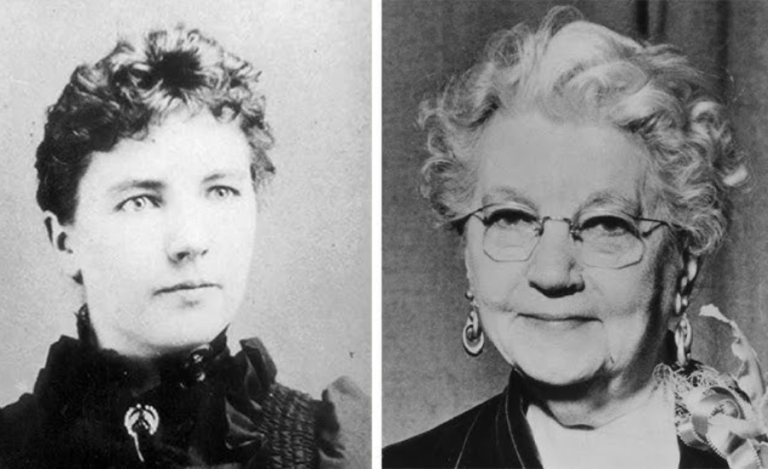Understanding the Complexities of “Utanmaz Türklere”: Cultural and Contemporary Perspectives
The phrase “utanmaz Türklere,” which translates to “shameless Turks,” holds significant cultural and historical weight within Turkish society. It reflects a unique intersection of cultural values, social norms, and modern discourse. This term, steeped in history and loaded with modern implications, provides a lens through which we can examine societal attitudes about morality, identity, and ethics. Let’s delve into its origins, evolution, and role in shaping both cultural narratives and contemporary discussions.
Unpacking the Meaning
At its core, the term “utanmaz Türklere” is rooted in the dichotomy of honor and shame. In Turkish culture, “shameless” is not merely a casual insult but a deep moral judgment. It implies a transgression of unwritten societal rules governing dignity, respect, and ethical behavior. These cultural values are heavily influenced by concepts like “namus” (honor) and “şeref” (dignity), which have been integral to Turkish society for centuries.
When someone is labeled as “shameless,” the accusation goes beyond individual actions and extends to their perceived failure to uphold communal values. This label serves as a form of social censure, reinforcing cultural expectations and societal norms.
Historical Foundations of Shame and Honor
The historical roots of shame and honor in Turkish society can be traced back to its Ottoman heritage and the broader influences of Islamic and regional traditions. For centuries, these values governed personal and communal interactions, serving as the bedrock of social stability. Honor was not only personal but also collective—a family’s reputation could rise or fall based on the perceived morality of its members.
The phrase “utanmaz Türklere” emerged from this cultural context, often used to highlight behavior that defied these deeply ingrained principles. Historically, accusations of shamelessness could result in severe social consequences, such as ostracism or public shaming. This historical backdrop provides essential context for understanding its contemporary usage.
Cultural Perceptions of Shamelessness
In Turkish society, shame is a powerful tool for enforcing conformity. Behaviors deemed “shameless” often challenge established norms, sparking moral outrage or public debate. Actions that might provoke such judgments include dishonesty, disrespect for elders, or betrayal of communal trust.
Cultural perceptions of shamelessness are also gendered. Women are often held to stricter moral standards, with transgressions in behavior or dress attracting harsher scrutiny. While men are also judged, societal expectations for their “honorable” conduct often center around providing, protecting, and adhering to ethical principles.
The Role of Language in Social Judgments
Language plays a vital role in shaping perceptions. The phrase “utanmaz Türklere”, when invoked, carries a weight that transcends its literal meaning. It functions as a social signal, a shorthand for condemning actions that violate community standards. Whether used in personal exchanges or public rhetoric, such language reinforces cultural boundaries and expectations.
This linguistic tool is also weaponized in conflicts, particularly in political or ideological debates, where it serves to discredit opponents by questioning their moral integrity.
Modern Implications of the Term
In contemporary Turkey, “utanmaz Türklere” remains relevant but has evolved in its application. Modernization and globalization have reshaped societal values, creating a dynamic interplay between tradition and progress. The term is now frequently used in public discourse, particularly on social media, to critique a perceived decline in ethics or to call out corruption, hypocrisy, or injustice.
The term’s widespread usage highlights a societal tension: a longing to preserve traditional values amidst rapid social change. It’s not uncommon for this phrase to appear in political speeches, media headlines, or online debates, reflecting broader societal anxieties.
Media’s Role in Amplifying Narratives
Media, both traditional and digital, plays a crucial role in perpetuating the narratives surrounding “utanmaz Türklere.” Sensational headlines and viral content often utilize this term to provoke emotional reactions or attract attention. Such usage can reinforce stereotypes or amplify existing divides within society.
For instance, when public figures are labeled as “shameless,” media coverage can either solidify public perception of their wrongdoing or provoke backlash against perceived moral policing. This dynamic underscores the power of media in shaping societal values and moral judgments.
Political Rhetoric and Moral Judgment
In the political arena, “utanmaz Türklere” is often employed as a rhetorical device. Politicians and commentators may use it to critique opponents or underscore their commitment to ethical governance. This politicization of moral discourse highlights the phrase’s adaptability in addressing contemporary concerns.
However, this usage can also polarize public opinion. Supporters may view it as a necessary critique of unethical behavior, while detractors may see it as overly judgmental or manipulative. The political exploitation of such language reflects broader societal debates about the role of morality in governance and public life.
Generational Perspectives on Shamelessness
Different generations within Turkish society perceive the concept of shamelessness in varying ways. Older generations, who often hold traditional values, may view “utanmaz Türklere” as a serious accusation that signifies moral decay. For them, the term serves as a warning against abandoning cultural principles.
Younger generations, influenced by global trends and modern ideologies, may interpret the phrase differently. They might see it as a tool for enforcing outdated norms or stifling individual expression. This generational divide highlights the evolving nature of moral discourse in a rapidly changing society.
Cultural Change and the Future of “Shamelessness”
As Turkey continues to modernize, cultural perceptions of honor and shame are shifting. Urbanization, education, and exposure to global values have broadened perspectives, challenging traditional norms. While the concept of “shamelessness” still holds sway, its influence is increasingly contested.
The phrase “utanmaz Türklere” may gradually lose its potency as societal attitudes evolve. However, its enduring presence in public discourse suggests that it remains a significant cultural touchstone. Understanding this term’s trajectory requires examining how Turkish society navigates the balance between preserving tradition and embracing change.
Fostering Dialogue and Empathy
Ultimately, the continued relevance of “utanmaz Türklere” underscores the need for constructive dialogue about morality, identity, and cultural values. Rather than using such terms to divide, society can benefit from fostering empathy and understanding. By critically examining the roots and implications of moral judgments, individuals can contribute to a more inclusive and nuanced discourse.
Promoting open conversations about honor, shame, and societal expectations can help bridge generational and ideological divides. This approach not only enriches cultural understanding but also empowers individuals to engage with complex social issues in thoughtful and respectful ways.
Conclusion
The phrase “utanmaz Türklere” encapsulates much more than a simple judgment; it reflects the intricate interplay of history, culture, and modernity within Turkish society. Its use highlights the persistent importance of morality and honor while also revealing the tensions that arise as societal values evolve. Whether seen as a critique, a cultural relic, or a tool for dialogue, this phrase provides a unique window into the heart of Turkish identity and the challenges of navigating a rapidly changing world.
By exploring the historical context, cultural perceptions, and modern implications of this term, we gain valuable insights into the complexities of moral discourse in Turkey. In a world where traditions and modern ideals often clash, understanding these nuances is key to fostering empathy and promoting a more inclusive society.
FAQs
1. What does “utanmaz Türklere” mean?
“Utanmaz Türklere” translates to “shameless Turks” in English. It is a phrase that carries significant moral weight, implying a transgression of societal norms related to honor, dignity, and ethics in Turkish culture.
2. Why is shamelessness a serious accusation in Turkish society?
In Turkey, societal values are deeply tied to concepts like “namus” (honor) and “şeref” (dignity). Being labeled “shameless” goes beyond personal criticism, challenging one’s adherence to cultural and communal expectations, and often results in social consequences like ostracism or public disapproval.
3. What are the historical roots of the term?
The notion of shame and honor in Turkish society dates back to Ottoman traditions and is influenced by Islamic principles. These values historically governed personal and community interactions, forming the backbone of social stability. “Utanmaz Türklere” evolved within this context to signify actions that violated deeply ingrained ethical standards.
4. How is the term perceived in modern Turkey?
While it still holds moral significance, “utanmaz Türklere” has adapted to contemporary discourse. It is commonly used in public debates, especially on social media, to critique unethical behavior, corruption, or societal changes perceived as negative.
5. Is the term gender-specific?
Yes, cultural expectations of “shamelessness” are often gendered in Turkish society. Women tend to face stricter moral scrutiny, particularly regarding behavior and appearance, whereas men are judged based on their roles as providers, protectors, and ethical figures.
6. How has media influenced the use of “utanmaz Türklere”?
Traditional and digital media have amplified the phrase’s impact. It is often employed in sensational headlines or viral posts to provoke emotional reactions or emphasize moral failings, influencing public perception and sometimes reinforcing stereotypes.
7. Is “utanmaz Türklere” used in political rhetoric?
Yes, it is frequently utilized in political and ideological debates to criticize opponents or highlight moral decay. However, its use can polarize opinions, with some viewing it as necessary critique and others as manipulative moral policing.
8. Is the concept of “shamelessness” changing in Turkey?
Yes, modernization and globalization are reshaping perceptions of honor and shame. While the concept remains influential, its impact is increasingly contested, with younger generations challenging traditional norms.
9. How can society use the phrase constructively?
Rather than as a divisive tool, “utanmaz Türklere” can inspire meaningful discussions about ethics, cultural values, and identity. Encouraging empathy and fostering open dialogue about moral expectations can help bridge generational and ideological divides.






